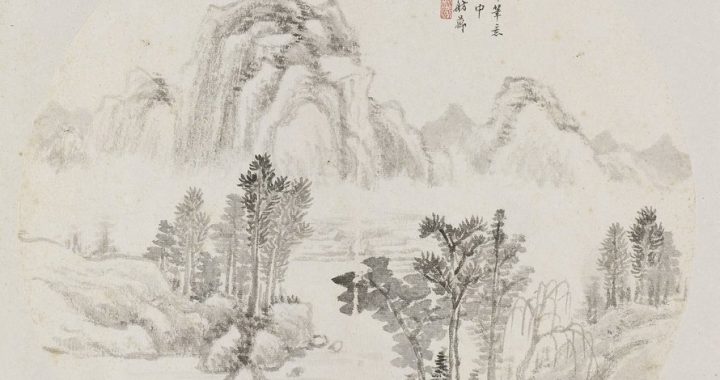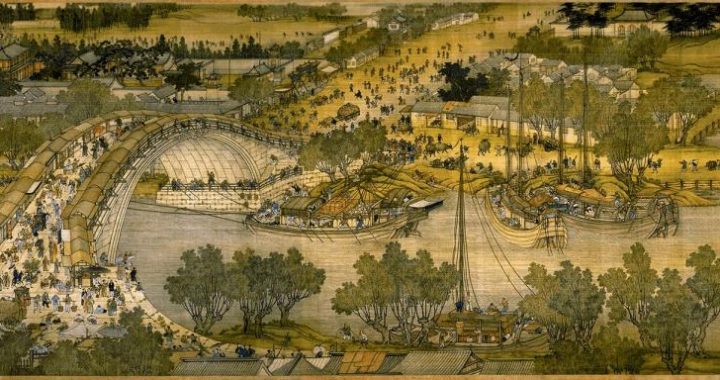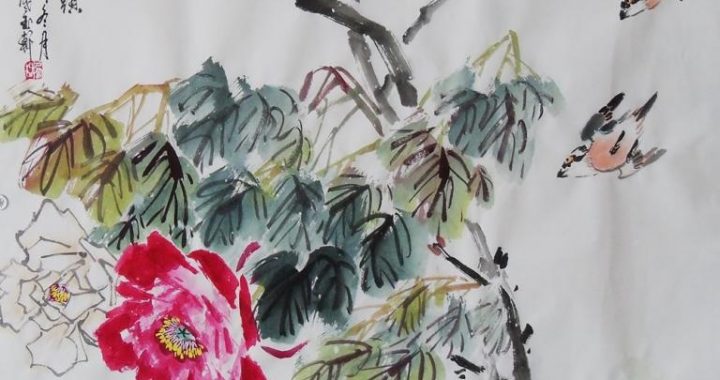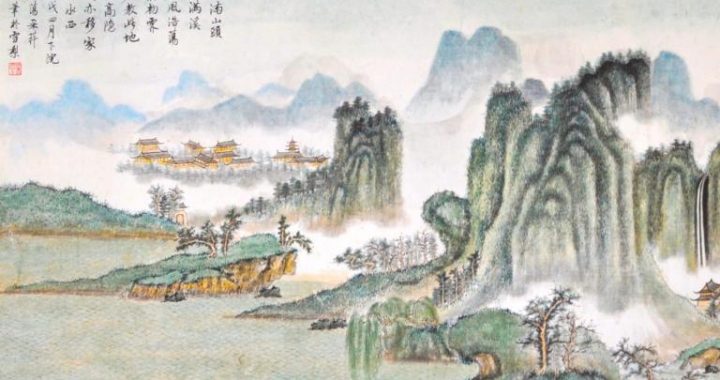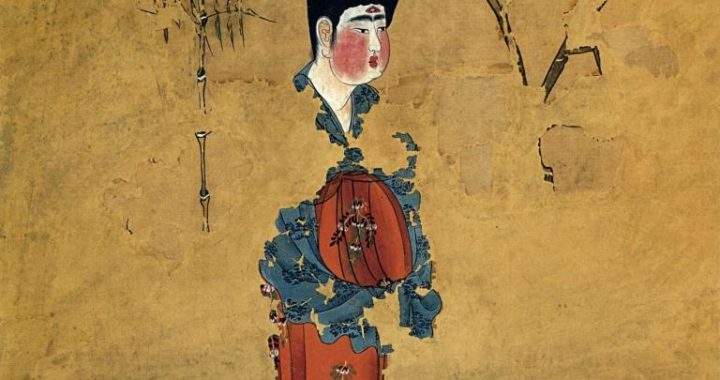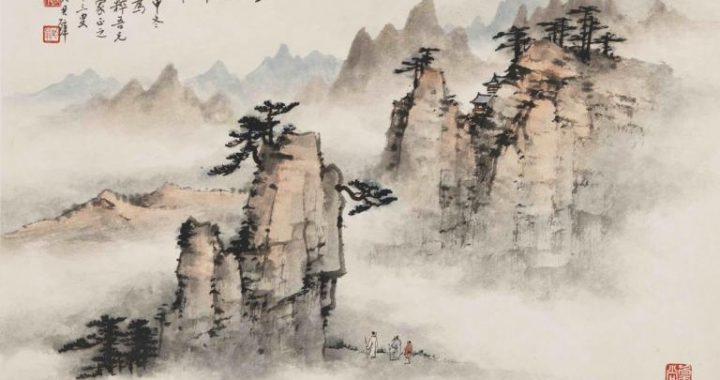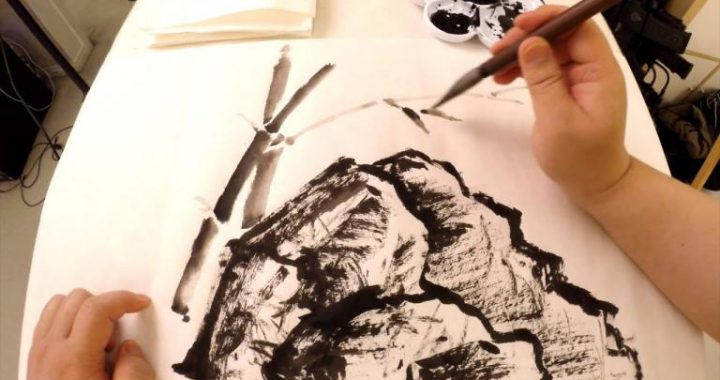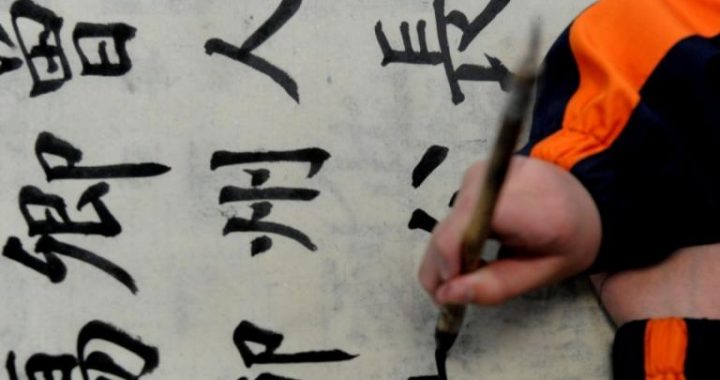Themes of Traditional Opera
12 min readThe six classical works mentioned above are all literal creation with the formof opera. Chinese traditional operas, created by performers and working staff in real practice, are far more colorful. The characters and plots are often flexibly adapted based upon certain story prototypes. As more opera forms emerged, many same stories were performed with different techniques of expression. Many of these scripts, which were rarely published, have been lost with the passage of time. If without any knowledge about them, it could be hard to understand the truth of Chinese traditional opera. Like folk tales, most of traditional operas take the following aspects as their themes.
1) Talented Scholars and Lovely Ladies
In traditional operas, this genre is in the majority. Both Romance of the Western Chamber and Peony Pavilion discussed above are of this type, which could be further classified into the following:
Son of a declined family who is financially aided by a girl. This type was common in luandan operas in the Qing dynasty. By the late Qing dynasty, Pearl Tower was extremely popular. Fang Qing’s father dies of illness at home soon after his resignation. To make matters worse, Fang Qing’s house isburned down by fire. He can do nothing but go to his aunt for help. However, his aunt pushes him out due to the decline of his family. Chen Cui’ er, his aunt’s daughter, appreciates Fang Qing’s talent and orderes her maid to catch up with him and gives him a pearl tower. Fang Qing wins the first place in the imperial exam later. He disguises himself as a poor Taoist priest and goes to his aunt’s to sound out her intention. Unexpectedly, shestill looks down upon him. Fang Qing satirizes her and tells her the truth later.

Fang Qing and Cui’ er finally get married. In Crimson Fingerprint, Lin Zhaode and Wang Guiying are engaged by their parents before they are born. Later Lin’s familydeclines, Wang Guiying intends to give him some money, but this move gives rise to series of incidents. Later Bao Zheng hears their case and Lin Zhaode and Wang Guiying finally get married. In this kind of operas, the hero and heroine are engaged and trust each other. But their parents like the rich. and dislike the poor, their attitude toward marriage all depends on the wealth of the other side. At the end of these operas, the hero and heroine get married, their parents were scorned.
This type of opera acclaims the traditional moral values and criticizes those townspeople who worship money.
A faithful girl marries heartless man. The betrayal of scholar after winning the first place in the imperial exam is one of the themes in operas of the Song and Yuan dynasties. Cai Bojie was depicted as a man of betrayal before the story was adapted by Gao Ming in Romance of Pipa. Many folk operas were based on this story afterwards. Qin Xianglian,a luandan opera in the Qing dynasty, is still popular today. Chen Shimei,a scholar in the Song dynasty, marriesQing Xianglian and have a boy and a daughter. Later Chen Shimei wins the first place in the imperial exam and is appointed as the emperor’s son-in-law. Three years later, Qin Xianglian goes to the capital with her children to look for her husband, but Chen Shimei denies knowing them and drives them away. He even orders his houseman, who commits suicide after knowing the truth, to assassinate them. When Judge Bao Zheng knows of the whole story, he executes Chen Shimei with a set of guillotines regardless of the princess’s plea. The story of Chen Shimei is extremely famous in China. Chinese people often use the term Chen Shimei as synonymous for ungrateful and love the new.
and loathe the old.
The couple finally gets together after tremendous hardships. In this kind of operas, the husband intends to reunite with his wife after he wins the first place in the imperial exam, but suffers setback and difficulties from certain schemers.
But the couple finally get together after going through all these sufferings.
Romance of a Hairpin, an opera of the Yuan dynasty, is the representative work of this type. Yulian’s father wants Wang Shipeng to be his son-in-law, but Wang’s family is poor, so Wang Shipeng’s mother offers her vitex hairpin as betrothal gift. However, Sun Ruquan, Wang’s friend, also falls in love with Yulian and intends to give her a gold hairpin as betrothal gift. Yulian’s stepmother is a greedy woman, she wants Yulian to marry Sun Ruquan, but Yulian strongly disagrees and marries Wang Shipeng. Later Wang Shipeng wins the first place in the imperial exam. He writes Yulian a letter, saying that he intends to take Yulian to live with him. But the letter happens to be in the hand of Sun Runquan who alters it into a divorce letter. After reading the letter, Yulian’s stepmother forces Yulian to remarry. Yulian firmly refuses to obey and jump into the water. She is saved by a Fujian official, who adopted her as his daughter. Yulian and Wang Shipeng got together in the end. These operas highly praise the true love between the hero and heroine.
All these operas have a common plot, namely, the influence on the love and marriage brought by the hero’s success in the examination, the power of money, and the critique of ethics. These operas reflect some problems of the traditional Chinese society. Men could change their destiny as long as they succeeded in the examination, which were recognized by the masses, while women’s destiny only depended on their husbands. These operas attacked the faithless men and praised those who were committed to their love. Money became more and more important, but the playwrights were on high alert and regarded it inferior to moral values, which reflects the emphasis on morality rather than money in the traditional Chinese society. Female characters in these operas are kind, beautiful, frugal, and faithful to their marriage. Many women characters were sympathized and praised by the audience and their stories are still popular among people.
2) Kings and Princes, Generals and Ministers
Many traditional operas are based upon histories, so ancient kings and princes, generals and ministers tend to be active characters on the stage. This type of opera could be divided into two categories. One is about fighting on the battlefield and the other is about hearing a case.
Chinese people are accustomed to have door gods adorn on their doors. These doorgods, including Zhang Fei, Guanyu, Wei Chigong and Qinqiong, are in opera costumes.
This replies that people’s imagination about them comes from the opera characters In fact, the stories of the Three Kingdoms, the Tang dynasty and the Song dynasty are often put on the stage. The stories of the Three Kingdoms are often the themes of local operas, especially bangzi and Beijing opera. The characters of Liu Bei, Guan Yu, Cao Cao, Zhuge Liang, Zhang Fei and so on are very popular among the Chinese people. Cao Cao is famous for his white face, Guan Yu for his red face, and Zhang Fei for his black face. People are familiar with such stories as Liu Bei entrusting his son Liu Chan to Zhuge Liang, Zhao Zilong’s heroic fighting in Chang Banpo, and Zhuge Liang’s empty fort strategy.
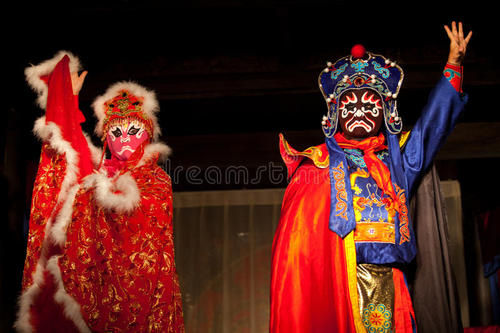
Local operas often presente stories of the Three Kingdoms, such as Three Heroes Fighting against Lv Bu, The Capture and Release of Cao Cao, Series of Stratagems, Empty Fort Strategy, and Ganlu Temple. Stories of the Sui and Tang dynasties are also the common themes in local operas. Cheng Yaojin, Qin Qiong, Luo Cheng, Shan Xiongxin were all the heroes from Wagang Stockade in the late Sui dynasty. They assisted Tang Emperor Taizong to stabilize the situation and seize power. Such plays as Yield to Tang Dynasty, Lock Five Dragons, Lin Tong Mountain, Sell Horses, and Attack Dengzhou are all about them. Wei Chigong and Xue Rengui were warriors in theearly Tang dynasty. They fought for Tang Emperor everywhere. Operas presenting these figures include Fenhe Bay, Excel in Shooting and One Way Pass. Fan Lihua was a female warrior and so brave that no one could match her. There are many operas about In Fan Lihua’s Expedition to the West, Fan Lihua is the commander in chief, while her husband is the pioneer. The Song operas about battlefields put more attention to the generals of the Yang family and the heroes of the Water Margin. The state of Liao was a mortal malady for Song in the early Song dynasty, and many heroes fighting against Liao were eulogized by people. Three generations of Yang’s family went to the north frontier. The first generation was Yang Jiye, and the operas Shetang Pass andLi Ling’s Tombstone are about him. The main characters of the second generation were Yang Zongbao and Mu Guiying, The notable At the Crossroads, Tianbo Tower, Yang Silang Visits His Mother, Execution at Outer Gate of Government Official and Lady General Mu Takes Commander are all the operas about the couple. The stories about Water Margin have been popular among common people. Operas about Water Margin focus on Song Jiang, Wu Song, and Li Kui, extolling their loyalty and integrity. Cuiping Mountain, Zhujia Village, Li KuiStirs Up Trouble at Loyalty Ha11, and others are often performed.
The drama of Judge Bao Zheng is the most famous in the trial theme. Bao was a general of the Northern Song dynasty and was renowned for his filial piety, his stern demeanor, and his intolerance of injustice and corruption. Due to his fame and the strength of his reputation, Bao’s name became synonymous with the idealized “pure official”, and quickly became a popular subject of early vernacular drama and literature. However, the main plots of this kind of drama isirrelevant to the JudgeBao, but it is him who finds out the truth, apprehends the murders, and punishes the villains. Bao Zheng is the symbol of justice in China today because he dares to try any case, up to the royal personages and down to the commoners. In drama, Bao Zheng uses three sets of guillotines, given to him by the emperor, to execute criminals.
The first is the dragon-headed lever-knife used on royal personages, those executed in The Case of the Eighth Prince, The Case of the Emperor’s Maternal Uncle, The Case of Chen Shimei, Take Guillotine to Court were all royal personages. The second is the tiger-headed lever-knife used on government officials. The third is the dog-headed lever-knife used on commoners. In The Case of Bao Mian, Bao Zheng even executes his nephew Bao Mian. Judge Bao isnot only perfectly impartial but also dares to go against the royal family. After executing Chen Shimei, Bao Zheng takes off his official uniform and goes to court with the empress to ask for a punishment, fully demonstrating his awe-inspiring righteousness.
These dramas reflect deeply the esthetics and moral values of people in ancient China. People extol faithful generals and attack the faithless. They admire heroes, especially female heroes, among whom Mu Guiying and Fan Lihua are their favorites.
They pursue justice and require that all criminals should be brought to justice no matter who he is. However, they are not aware of the importance of system change, and only wish for “pure official”like Bao Zheng, to give a hand to the ordinary people.
3) Immortals and Ghosts
It is common that ghosts appear in dramas. There is ghost of the former king in Hamlet. Ghosts in traditional operas are even more common. This type of drama could be divided into two categories, one is about magic art, and the other is about the love between human beings and ghosts.
Operas about magic art provide a good opportunity to display one’s martial ski11s. This kind of opera often borrows stories from Journey to the West, The Investiture of the Gods and Tales of the Eight Immortals. Before movies came into being, people got to know the image of Monkey King mainly through traditional operas, and still love the stories about him today. Erlang Shen (a Chinese God with a third truth-seeing eye in the middle of forehead) is also a favorite. The story about his dealing with Monkey King through magic powers is the most famous. Nezha (a deity in Chinese mythology and literature) has frequently appeared in dramas due to his nice image and magic powers. Stories about the the Eight Immortals first appeared in the Jin dynasty and are still popular among people today, some characters such as Elder Zhang Guo (a Taoist occultist-alchemist) and Lan Caihe (one of Eight Immortals) often showing up on the stage to tease the audience. Besides immortals, the scene of the Palace of the King of Hell is often displayed in dramas.
There are many cruel penalties set up in the Palace to punish the evil after their As for operas about the love between human beings and ghosts, Legend of the White Snake is the most famous. Two snakes called Bai Suzhen and Xiaoqing convert themselves into human beings and come to Hangzhou. Bai Suzhen falls in love with Xu Xian and they get married. But Fahai,a monk in Jinshan Temple, tries to separate them. Instructed by Faha, Xu Xian goes to burn incense and prays to Buddha. During his absence from home, Fahai tries to capture Bai Suzhen and Xiaoqing who fight with him by submerging Jianshan Temple, but finally they are beaten and Bai Suzhen is suppressed under Leifeng Tower. Many operas are based on this story. Broken Bridge is a famous example. Heavenly Match, also known as Seven Fairies Come Down to Earth.
is a classical Huangmei opera.
The seventh fairy in heaven expects to live in the human world, so she leaves the heaven and makes acquaintance with Dong Yong, who is diligent, kind but poor.
The seventh fairy shows sympathy to him at first but falls in love with himgradually. They get married under an old Chinese scholar tree. With other six fairies’ help, the seventh fairy and Dong Yong complete the harsh requirements of Dong Yong’s employer Councilor Fu. They think that they will live a happy life from then on, but Queen Mother forces the seventh fairy to come back to the heaven. The Cowherd and the Weaving Girl is another classical opera, known to all in China. The weaving girl comes to the earth, but is called back when she is in love with the cowherd. They are allowed to meet once a year on July the seventh of the lunar calendar which is now called Chinese Valentine’s Day. Now, many Chinese people still walk under a grapevine to listen to the sweet words of the cowherd and the weaving girl by the magpie bridge on this day.
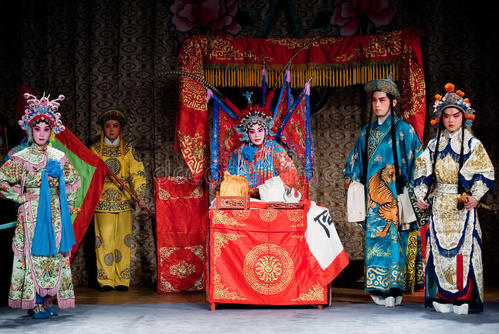
There are many dramas about the love between human beings and ghosts, and the most classic is The Peony Pavilion, in which Du Liniang dies of lovesickness but her soul finally comes back to her body with a happy ending. The Young Lady Died forLove is similar to this drama. Wang Wenju,a scholar, and Zhang Qiannv are engaged before their birth. When they grow up, Qiannv’s mother doesn’t allow them to get married because of Wang Wenju’s failure in climbing up the official ladder. Wang Wenju has no choice but to take part in the imperial examination. Zhang Qiannv misses him so much that she gets ill. Her soul leaves her body and catches up with Wang Wenju to the capital. But her body still lies on bed at home. After Wang Wen ju takes an official rank, Zhang Qiannv’s soul and body are reunited. They get married and the drama ends with a happy family reunion. This story originates from the Tang legend Wandering of Soul, adapted by many dramatists and performed in different forms of operas, and many dramas about the revival from death are similar to this one. In pursuit of love, the soul of the beautiful girl gets out of the body but returns after she gets the love and marries her lover.
This is only a snapshot of some of the main themes which shall go into more categories if specifically analyzed. People of all walks of life, including monks, bandits, peddlers, prostitutes, woodcutters, fishermen, and so on, could be portrayed in operas. As one saying goes,”If it is in operas, it happens in daily life.”In fact, everything which happens in the world can find its trace in drama.
